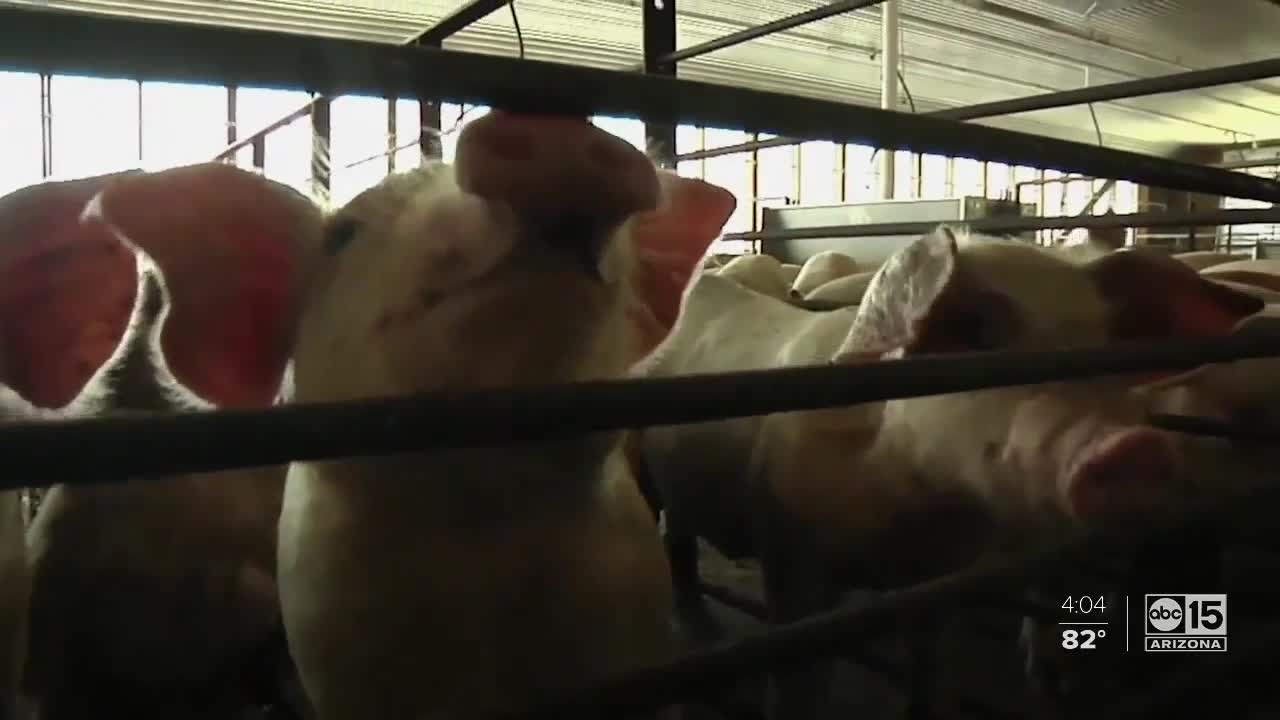Getting pork and beef to the meat counter could become a tougher task, experts say, as COVID-19 weighs on the supply chain.
In recent weeks, several meat processing plants across the country have temporarily closed as workers fell ill with coronavirus. On Monday, JBS USA announced the closure of a pork production facility in Minnesota.
Experts are keeping an eye on the number of plants affected across the country.
"If it's a 10% closure, we've heard some of those percentage numbers, than we're talking about anywhere from eight-to-ten million pounds of pork that is no longer in that food supply chain," said Julie Murphree, the outreach director for the Arizona Farm Bureau.
As processing plants have been affected across the country, companies are working on trying to prevent workers from getting sick.
In Tolleson, the JBS Beef Plant remains open. A company representative told ABC15 they are conducting temperature checks on workers before they enter a facility, requiring the use of masks and staggering shifts, among other efforts, to try and keep everyone safe.
Meanwhile, a workers union that represents meatpacking employees is calling on the federal government to provide additional measures.
"The job itself, there's a lot of people working altogether," said Martin Hernandez, the director for the United Food and Commercial Workers Local 99, a union that represents roughly 1,400 meatpacking workers in Arizona.
The UFCW sent a letter to the U.S. Dept. of Agriculture, calling for prioritized testing and personal protective equipment. Theletter states more than 600 members have been impacted by COVID-19 across the country, and six have died.
As for what consumers can expect at the store, Murphree told ABC15 you likely wouldn't see quick changes to prices, but some of the meat supply could end up having a difficult time making it to store shelves.
"As of today, everything looks pretty good in Arizona," Murphree said. "Again, we're in such unprecedented times, that it's hard to anticipate what the next piece of news coming out of our food supply chain will actually be."




